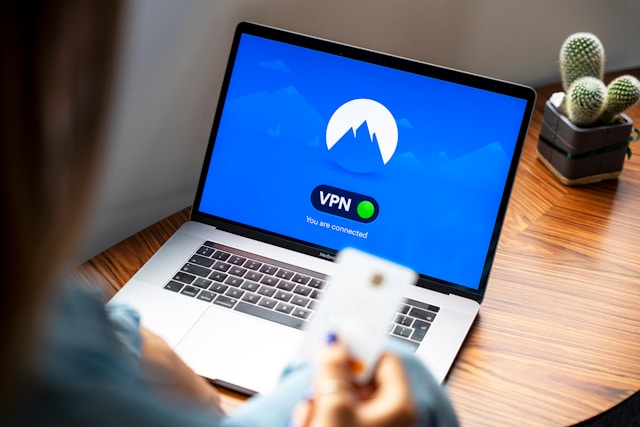A Step-by-Step Guide on Choosing the Right VPN to Meet Your Requirements

A Virtual Private Network, or VPN, is a powerful tool that acts as a shield for your online activities. It creates a secure, encrypted tunnel between your device and the internet, ensuring that your data remains private and protected from prying eyes. When you connect to a VPN, your internet traffic is routed through a remote server, masking your IP address and making it appear as though you are browsing from a different location. This not only enhances your online privacy but also allows you to access geo-restricted content and bypass censorship.
Importance of choosing the right VPN for specific needs
In today’s digital landscape, where cyber threats lurk at every corner, choosing the right VPN is crucial. An unreliable or insecure VPN service can expose you to a myriad of risks, such as data breaches, identity theft, or compromised online activities. Imagine your sensitive information, like passwords, financial details, or personal conversations, falling into the wrong hands. The consequences can be devastating. Moreover, if you rely on a VPN to access region-specific content or bypass censorship, a subpar service may fail to deliver, leaving you frustrated and vulnerable. Therefore, taking the time to select a VPN that aligns with your specific needs is not just a precaution but a necessity.
Step 1: Identify Your Needs
Before embarking on your quest for the perfect VPN, take a moment to reflect on your specific requirements. Are you primarily concerned about safeguarding your online privacy? Do you frequently travel and need secure access to public Wi-Fi networks? Perhaps you’re an avid streamer looking to unlock a world of geo-restricted content. Or maybe you handle sensitive data and require an extra layer of protection for your file sharing activities. Creating a checklist of your priorities will serve as a roadmap, guiding you towards the VPN that best suits your needs. Consider factors like the level of encryption you require, the number of devices you need to protect, and the speed and reliability you expect from your VPN service. By clearly defining your needs, you’ll be able to narrow down your options and make an informed decision.
Step 2: Research Different VPN Providers
With a plethora of VPN providers vying for your attention, it’s essential to conduct thorough research before making a decision. Start by exploring independent review websites and user forums to gather unbiased opinions and experiences from fellow VPN users. These platforms offer valuable insights into factors like server locations, connection speeds, pricing plans, and customer support. Pay close attention to any recurring issues or praise mentioned by users to gauge the overall reliability and performance of each provider. Additionally, consult expert recommendations from trusted tech publications or cybersecurity blogs. These sources often provide in-depth analyses and comparisons of various VPN services, highlighting their strengths and weaknesses. By combining user feedback with expert opinions, you’ll be able to paint a comprehensive picture of each VPN provider and make a well-informed choice.
Step 3: Evaluate Security Features
When it comes to choosing a VPN, security should be at the forefront of your considerations. Look for providers that employ robust encryption protocols, such as AES-256 and OpenVPN, to ensure that your data remains impenetrable to hackers and snoopers. A strict no-logs policy is another crucial feature, as it guarantees that the VPN provider does not store any records of your online activities, preserving your anonymity. Additionally, keep an eye out for advanced security features like split-tunneling, which allows you to route specific apps or websites through the VPN while others connect directly to the internet. This can be particularly useful if you want to access local content while still protecting your sensitive data. A kill switch is another essential feature that automatically disconnects your internet connection if the VPN unexpectedly drops, preventing any accidental exposure of your real IP address. Finally, consider VPNs that offer leak protection to safeguard against DNS, IPv6, and WebRTC leaks, which can reveal your true location and compromise your privacy.
Step 4: Consider Speed and Performance
Whilesecurity is paramount, a VPN that compromises speed and performance can be frustrating to use. When evaluating VPN providers, consider factors that impact speed, such as server locations, bandwidth, and user load. A VPN with a vast network of servers spread across multiple locations is more likely to offer faster connections and lower latency. This is especially important if you frequently stream video content or engage in online gaming, as a slow VPN can result in buffering, lag, or disconnections. Look for providers that offer unlimited bandwidth and do not throttle your connection speeds, ensuring that you can browse, stream, and download without any restrictions. Some VPNs even offer optimized servers specifically designed for streaming or gaming, providing an enhanced experience. Keep in mind that the distance between your physical location and the VPN server you connect to can also affect speed, so choose a provider with servers close to your region for optimal performance.
Step 5: Check Compatibility and Simplicity
In our multi-device world, it’s crucial to select a VPN that offers cross-platform compatibility and ease of use. Look for providers that offer user-friendly apps for all your devices, including smartphones, tablets, laptops, and desktop computers. The VPN software should be intuitive and easy to navigate, allowing you to connect to servers, adjust settings, and manage your account with just a few clicks. Seamless integration across multiple operating systems, such as Windows, macOS, iOS, and Android, is essential to ensure that you can protect your privacy and access content on all your devices. Additionally, consider VPNs that offer browser extensions for popular web browsers like Chrome, Firefox, and Safari, providing an extra layer of convenience and protection. Some VPNs even allow you to configure your router to protect your entire network, eliminating the need to install the software on each individual device. By choosing a VPN with excellent compatibility and simplicity, you can enjoy a hassle-free experience while safeguarding your online presence.
Conclusion
Choosing the right VPN is a critical decision that can significantly impact your online privacy, security, and freedom. By following this step-by-step guide, you can navigate the complex landscape of VPN providers and select a service that aligns perfectly with your unique requirements. Start by identifying your specific needs, whether it’s safeguarding your privacy, accessing geo-restricted content, or protecting sensitive data. Conduct thorough research by exploring user reviews, expert recommendations, and independent comparisons to gain a comprehensive understanding of each provider’s strengths and weaknesses. Evaluate the security features offered, such as robust encryption protocols, a strict no-logs policy, and advanced options like split-tunneling and kill switches. Consider the impact of speed and performance on your VPN usage, opting for providers with vast server networks, unlimited bandwidth, and optimized servers for streaming or gaming. Finally, ensure that the VPN offers cross-platform compatibility and a user-friendly interface for a seamless experience across all your devices.



